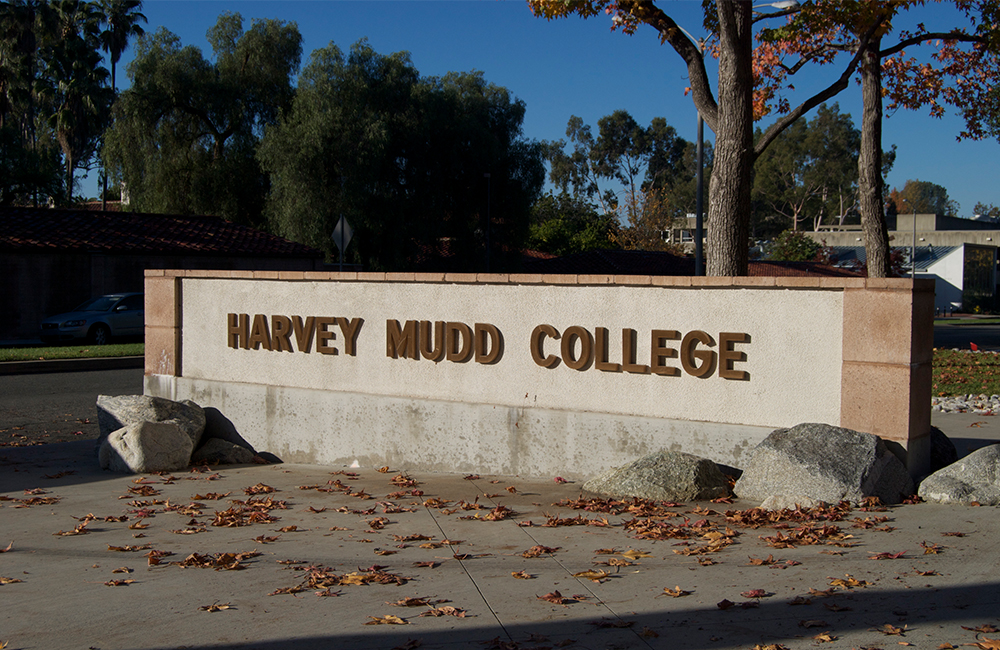HMC Named NASPA LEAD Initiative Institution
September 12, 2019
The Harvey Mudd College Office of Community Engagement works on campus and with the broader community through a variety of programs to educate and empower its constituents to make meaningful contributions to society. Having overseen many successful programs at HMC, including Homework Hotline (which will celebrate its 10-year anniversary in 2020), Science Bus and the Prison Education Project, Gabriela Gamiz, director of community engagement, wants to do more. A strategic partnership with the National Association of Student Personnel Administrators (NASPA) will provide opportunities to further this goal.
“Our HMC community has done so much in the area of community-based learning, both inside and outside of the classroom, and we have learned a lot from those experiences, but we could do more to be part of a bigger picture,” Gamiz says.
Motivated by the desire to share best practices and learn from the successful ventures of other institutions, the College applied and has been accepted as a NASPA LEAD Initiative Institution for the 2019–2020 academic year.
NASPA is the professional organization for higher education student affairs administrators, and the LEAD Initiative on Civic Learning and Democratic Engagement comprises a network of NASPA member colleges and universities committed to encouraging and highlighting the work of student affairs in making civic learning and democratic engagement a part of every student’s college education.
The LEAD Initiative offers unique professional development opportunities, targeted resources, networking and recognition for participating institutions.
“As a participating institution, we are part of a learning community,” says Gamiz, who serves as the College’s LEAD representative. “I see myself as both a co-learner and co-educator in this initiative. The goal is to help us move forward on identified areas of growth and to contribute our best practices to other institutions across the nation.”
Increasing Harvey Mudd students’ civic engagement was another motivation for applying to the LEAD program. “The HMC Office of Community Engagement would like to bring together our different on-campus constituents as well as community members to focus on civic inquiry as our primary theme,” says Gamiz. “Given our history, our current discussions on equity, diversity and inclusion of all learners within STEM and our desire to find innovative ways to intersect disciplines of STEM with social justice, it is critical to reflect upon and inquire about the civic dimensions and public consequences of a subject of study; the exploration of the impact of choices on different constituencies and entities.”
Under the theme of civic inquiry, Gamiz and her colleagues will work with faculty, administrators, students and community members to learn more about the local community’s values and purpose, and to determine how the Harvey Mudd mission statement aligns with the community’s civic responsibility as scientists and citizens.
Gamiz has identified several goals she hopes to implement or expand at the College through the LEAD Initiative, including providing more volunteer opportunities (e.g., Science Bus, Prison Education Project, Food Recovery, CUSD Math Olympiad and Healthbots); offering more service-learning courses; increasing participation in academic and student affairs (professional development via faculty workshop series and conferences); participating in national recognition programs; and increasing civic learning and democratic engagement throughout the existing community engagement framework.
“Working with existing community partners, such as the local school districts, nonprofit and local task forces, we are able to identify high-need issues,” Gamiz says. “Community engagement at HMC seeks to empower local populations to make their own change in the community. I look forward to the learning opportunities the LEAD Initiative will bring.”
